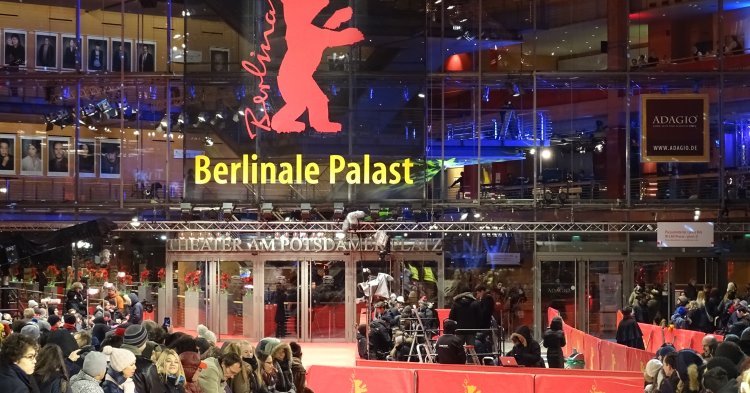It is quite rare for artists in the cinematic world to claim affiliation with any political or cultural entity. A film crew usually consists of several nationalities and the film, as an artistic work, has a certain universal character. Cinema, therefore, is effectively stateless. To celebrate this art and its diversity, Europe has not one, but a multitude of international film festivals on its soil: the Berlinale in February, Cannes in May, Venice’s Mostra in September, the Karlovy Vary IFF in November, and so forth. Whilst each of these festivals welcomes non-European films, their primary aim is to showcase local talent. Each city, therefore, assembles its own programme based on the nature of its jury. The term ‘European cinema’ would, in this case, refer to a simple geographical distinction, as each director has their own style, and each city a different festival.
Berlin, the political
Next year, the Berlinale will celebrate its 70th anniversary. Originally created in West Berlin in 1951, the festival first intended to export English-American cinema to Germany. After the Second World War, Europe needed time to renew itself culturally. In just a dozen years, it achieved the impossible: the New Wave in France, Italy’s auteur cinema, and the new school of German cinema - each of these movements could hold its own against Hollywood.
Having gained prestige over the years, the Berlin Film Festival became witness to a number of political struggles. Thus, in 1970, the film ‘O.K’ by director Michael Verhoeven was heavily criticised by some members of the jury for its controversial stance. The director had staged the rape of a young Vietnamese girl by American soldiers. The scandal was such that no prizes were awarded that year. In 2019, in the face of accusations of sexism in the film world, the Berlinale sought to promote gender equality among the competitors by selecting the works of 7 female directors. In the end, the Golden Bear was awarded to the Israeli director Nadav Lapid for his film ‘Synonyms’ which tackled the political and societal tensions of his country.
Cannes, the glamorous
After the Second World War, a small town on the French Riviera was chosen to host a new international film festival. Whilst it was French actresses and intellectuals that first built up the reputation of La Croisette, American and Italian stars soon joined the party. Once again, this festival has an international scope: its aim is not just to promote European artists. On the other hand, the attention generated by the festival has allowed the European public to discover a new type of cinema. Names such as Roberto Rossellini, François Truffaut, Ingmar Bergman or Luis Buñuel would crystallise around the festival, making auteur cinema inseparable from Cannes. In 2020, due to Covid-19, the 74th edition of the festival was postponed to October and was held in a reduced committee.
Venice, the picturesque
Launched in the 1930s, la Mostra di Venezia went through some tricky patches before rising from its ashes after 1980. Whilst Cannes was caught off guard by this year’s pandemic, the Venice film festival was able to go ahead for its 77th edition in September, with Cate Blanchett as president. The Golden Lion went to the American film ‘Nomadland’ by Chloé Zao.
Karlovy Vary, the liberated
Created in 1946, the Karlovy Vary Festival in the Czech Republic suffered almost 40 years of political pressure before experiencing a revival from 1994 onwards. In just a few years, the new programme implemented by the actor Jiří Bartoška and the journalist Eva Zaoralová enabled the festival to reclaim its prestige and to regain the interest of both professionals in the film industry and the general public.
These four film festivals are just the tip of the iceberg. Many cities such as Vienna or London host their own film events. On a European scale, the Berlin-based European Film Academy (EFA) is responsible for selecting and awarding prizes to artists from across the continent (European Film Awards). However, it is less high-profile than other festivals. Nonetheless, this lack of media attention needs to be put into perspective, since the film world remains extremely cosmopolitan. Each jury judges, first and foremost, the artist’s performance, European or not. Above all, cinema is about freely telling a story and transporting the audience to an elsewhere, where reality and fantasy meet. This is the primary vocation of cinema.


Follow the comments: |
|
